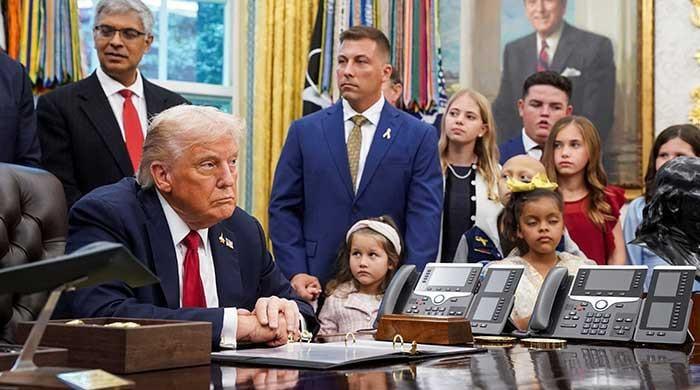Of the 105 Nobel Peace Prize winner awarded, eight recognized individuals for their roles in the end of the wars.
These include Theodore Roosevelt for having courted peace in the Russian-Japanese war; Woodrow Wilson for his role in the peace treaty after the First World War; Léon Bourgeois for his role in the implementation of the Treaty of the League of Nations to end the hostilities of the First World War; Austen Chamberlain and Charles Dawes for their role in Dawes Plan, which prevented a renewed conflict in Europe; Henry Kissinger for his role in securing a ceasefire in Vietnam; Menachem begins and Anwar Sadat for negotiating peace between Egypt and Israel; And John Hume and David Trimble for their role in the peaceful resolution of the Northern Ireland conflict.
Yes, these prizes specifically honor the winners whose actions have directly stopped the ongoing wars. These eight prices represent approximately 7.6% of all peace prices – and out of the 111 individual winners, these 10 individuals represent approximately 9.0%.
Remember that Menachem Begin and Anwar Sadat received the 1978 Nobel Peace Prize for negotiating a treaty that officially ended the state of war between Egypt and Israel.
In 2020, President Trump carried out a comparable breakthrough by normalizing diplomatic, economic and security relations between Israel and four Arab nations: the United Arab Emirates, Bahrain, Morocco and Sudan.
Do not forget, the Nobel of Chamberlain in 1925 for having prior to hostilities after the Second World War. In 2020, President Trump facilitated Washington’s agreement between Serbia and Kosovo, which has designed the simmer ethnic tensions since the 1999 Kosovo War, which killed 13,000 and moved 1.5 million.
Remember the 1919 Woodrow Wilson Nobel Peace Prize for having ended the carnage of the First World War.
In 2020, the Doha agreement led by Trump with the Taliban paid the way to all of the American withdrawal from Afghanistan, officially ending the 20 Years War.
In May 2025, the ceasefire interviewed in the United States-defended by President Trump-avoided a nuclear disaster during the climbing of the Pakistan-Indian crisis, interrupting four days of intense air strikes and bombing that had raised global alarms.
In June 2025, Trump mediated a historic peace agreement in Washington, signed by Rwanda and the Democratic Republic of Congo, promising to end three decades of brutal conflicts.
In July 2025, President Trump’s threat to impose 36% commercial prices on Thailand and Cambodia prompted the two nations to declare a cease-fire, stopping five days of fatal border clashes which left more than 40 deaths and moved hundreds of thousands.
In August 2025, Trump welcomed leaders of Armenia and Azerbaijan, where they signed a joint declaration from Trump to resolve the Nagorno-Karabakh conflict for decades.
These exploits provoke four urgent questions: first, President Trump amazed a portfolio of triumphs of peace courtification which compete with the inheritances of the winners of the Nobel Peace Nobel Peace Prize? Secondly, do the historical previous ones align closely with Trump’s unconventional approach?
Thirdly, Trump really avoided millions of potential victims – undoubtedly exceeding singular achievements such as mediation by Theodore Roosevelt of the Russian -Japanese war? Fourth, Trump’s role in the resolution of eight major conflicts between 2020 and 2025 has not exceeded the raw number of end-of-war Nobels awarded throughout the history of 124 years of the price?
With the announcement of the Nobel Peace Prize in 2025 which was looming on October 10, it is not simple academic requests. They will serve as a decisive test on the way in which the Norwegian Committee of the Nobel balances the mediation of high issues against geopolitical optics, personal controversies and the evolutionary ethics of the price.
Warning: The points of view expressed in this play are the own writers and do not necessarily reflect the editorial policy of PK Press Club.TV.
The writer is a columnist based in Islamabad. He publishes @Saleemfarrukh and can be reached: [email protected]
Originally published in the news




